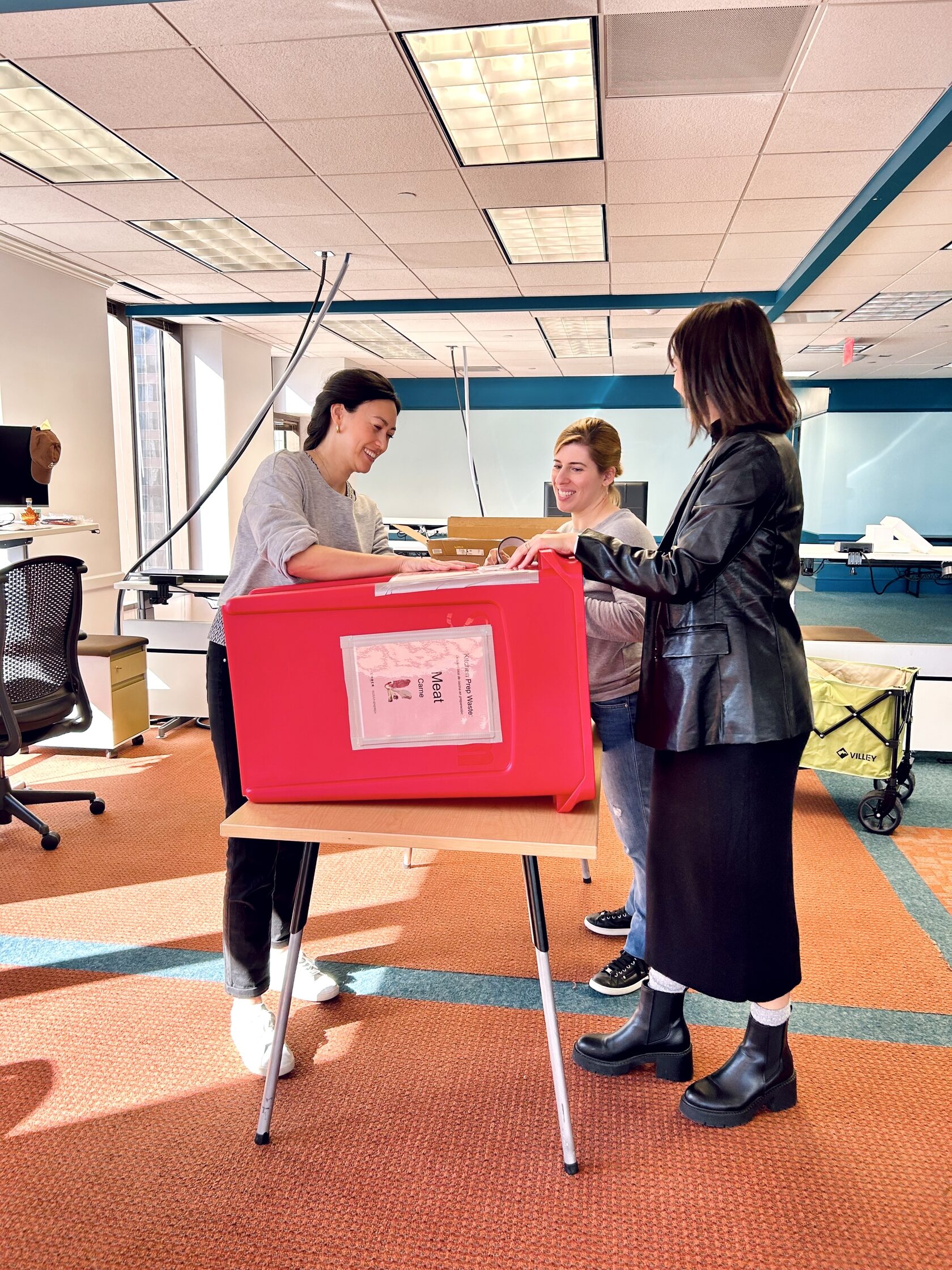The Solution: Piloting Food Donations at Ember
inKind has been recognized for its innovative solutions to complex, systemic problems. These tools are now being applied to help reduce the carbon footprint of the restaurant industry through targeted initiatives to minimize food waste.
inKind’s Sustainability Team tested a food-waste initiative at Ember Kitchen in Austin, TX that aimed to:
inKind’s Sustainability Team tested a food-waste initiative at Ember Kitchen in Austin, TX that aimed to:
- Prevent food waste from happening in the first place
- Divert any food waste that was created away from landfill.
In order to achieve these goals, inKind deployed a multi-tiered approach to understand how much food is being wasted by the restaurant, help the restaurant adjust purchasing behavior, and divert any wasted food away from landfill. The three-step process was as follows:
- Quantification: The first step was to measure the amount of food waste generated at Ember. By weighing food waste created during food prep, we were able to get initial insights into the volume of waste produced by Ember.
- Qualification: Once we understood the volume of food created by Ember, the next step was to use an AI device to get a clearer picture of what food items are being wasted. The AI device took photos of the food thrown away and identified each item in the bin. By understanding which foods were wasted the most, Ember was able to adjust their purchasing habits and inventory management system. This reduced how much food was being bought in the first place, ensuring less kitchen waste and a cost-savings for the restaurant.
- Diversion: Once the food waste was quantified and its components identified, the next step was to ensure any food waste generated does not end up in landfills. To divert food waste from landfills, the sustainability team focused on the following prioritization:

- Donations to humans: Donating food to food banks in Austin so that any edible food can be used to help people in need.
- Donations to animals: Any food waste that cannot be donated to humans is then donated to animals
- Composting: Inedible food waste is composted to enrich soil, promoting a circular economy and reducing methane emissions from landfills.

inKind is proud to share that over the course of the 3-month pilot, Ember diverted over 800 lbs of food waste to animal donations. Ember continues to divert food waste from landfill through its composting program. InKind is also actively exploring new and alternative food waste solutions and is open to new and different technologies and processes. The initiative at Ember is just the beginning, with goals to expand these practices across the inKind network, driving a larger, more impactful change in the hospitality industry.

